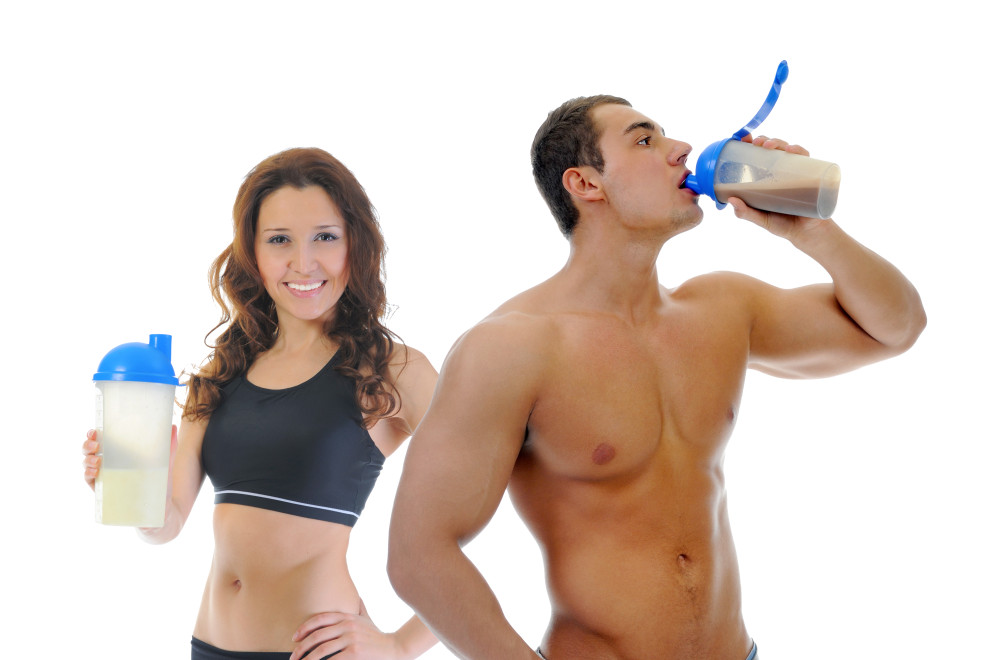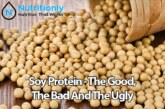Protein often plays the most important role on your plate, especially if you are an athlete, bodybuilder or just someone who works out a lot. Protein is needed to build muscle and strength, which is essential in most fields in sports. But how much protein do you need?

Let’s start from the beginning and explain what protein is and why you even need it at all.
Protein Basics
Proteins are molecules that are mostly made of amino acids that are joined by bonds and that create 3-dimensional structures to keep our body functioning.
When we consume proteins, our body breaks them down into amino acids and stores them in the body to help replace cells, transport nutrients through the body and help to repair and grow muscle. Hormone levels also increase glucagon levels, which is the hormone that controls body fat.
Almost all processes in the body need proteins to work, but how much exactly, depends on many things.
Recommended Protein Intake
In general, healthy untrained adults should consume 0.8 grams of protein per kilogram (that is 0.36 g per lb). This is the absolute minimum to prevent deficiency. However, there are many groups of people who need a lot more. For instance teenagers, pregnant or breastfeeding women, and of course, bodybuilders and athletes that are working out a lot.
For those who often engage in high intensity training, the need for protein is twice as much as it is for average people. Athletes should take around 1.6-2.0 grams per kilogram (that is 0.7-0.8 g per lb). But again, this is the minimal amount to survive and function.
In order to preserve muscle tone, strength and stay in shape, much higher protein intake is recommended. It is safe to say that in order to get the most benefits from your daily proteins, you should aim for them to make up 20-25% of your daily calories.

How and When to Eat Your Protein
After determining your protein intake, you should also think about how and when you are going to consume it.
Protein doesn’t just mean meat. Sure, including a lot of pork, beef and poultry in your diet does give you more protein, but you have to also think about other minerals and vitamins. There are also plenty of plant based protein rich foods, such as beans, nuts, whole grains and vegetables. Here is a list of some great protein sources.
· Fish (salmon, tuna, trout, haddock) – 21 g/serving
· Chicken or turkey – 19 g/serving
· Greek yogurt – 17 g/serving
· Cottage cheese – 14 g/serving
· Milk – 8 g/cup
· Pasta – 8g/cup
· Nuts – 7 g/serving
· Egg – 6 g/serving
Spread your proteins evenly throughout the day, don’t expect to eat a large steak at lunch and be done with it. The processes in your body are working round the clock and need protein for proper functioning. Include some proteins in all your meals, but pay special attention to our after-workout snack. This is the most important time to give your muscles some proteins so they could heal and recover from the strain that you just put on them.
What Happens If I Don’t Get Enough Protein?
The deficiency of protein in the body is basically deficiency of essential amino acids, it causes many different problems, including:
· Fatigue
· Muscle and weight loss
· Anemia
· Low libido
· Anxiety
· Depression
For athletes, the most worrying problem is that they lose their strength and muscle power. Their results will go down and they are less motivated and willing to work out.
What If I Get Too Much Protein?
Expert opinions in this regard are divided. Some believe that as you eat a diet high on protein, your body starts using amino acids to fuel the processes of your body and this may lead to nitrogen excretion as ammonia. High ammonia levels can cause stress on the kidneys and result in reduced appetite and unexplained vomiting.
Other experts argue that this is definitely not the case when you have had excess proteins. In fact, they believe that it is impossible to consume protein in amounts that could possibly harm the kidneys. What may happen is that you put on more weight when the excess protein starts to convert into fat or sugar. But even this is unlikely to cause problems, since the thermic effect won’t allow proteins to convert as easily as carbohydrates do.
The bottom line is that you need protein to keep your body running and if you are an athlete, you need it even more to keep your strength and muscle tone. So be sure to include some protein in every meal and take some extra on days you work out.





